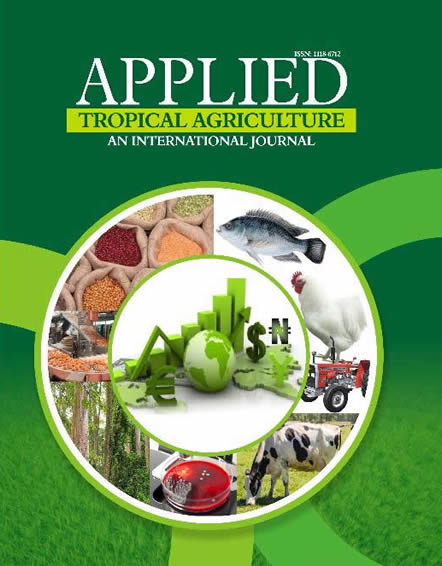The study investigated the roles of custom and belief practices used in the conservation of Agogo pond in Chito stream in
Ukum Local Government Area of Benue state, Nigeria. Purposive sampling technique was employed in the selection of six
villages. From each of the selected villages, 9 households were randomly selected. In each household, two members (a male
and a female) were selected based on their willingness to interact with the researcher. Data for the study was collected using
semi-structured questionnaire. Both descriptive and inferential statistics were used to analyze the quantitative data. The
result of the study revealed that 51.9% were male; the average age of the respondents was 45.98±19.775; majority 64.8% of
the respondents were farmers while 36.1% had non-formal education The pond is the major source of water to the community;
it is also the source of fishing, source of spiritual function, as well as medicine. The major taboo about the pond is the believe
of the presence of spirits in the pond. Six rules were made towards the use of the pond, which are water from the Pond should
only be fetched with calabash; no objects should be thrown into the Pond; women on their menstrual period should not use
the pond; foot wear should not be used while fetching water from the Pond; no bathing inside the Pond and no illegal fishing
in the pond. Violation of these rules attracts 6 sanctions, among which as; beating by spirits, starvation, sting by bees,
dumbness for days, swelling of the body, punishment by community. Christianity and modernization have no effect on the
beliefs system of the people of the area as they still keep faith in their belief and customs in conserving and protecting the
pond to continue to supply water to the community. Age (b=081with odds ratio Exp (b) of 1.084) and period of residence
(b= 1.420with odds ratio Exp (b) of .242.) had non-significant positive influence on respondent’s perceived knowledge about
the rules governing the use of the pond. Education had non-significant negative influence on respondent’s perceived
knowledge about the rules governing the use of the pond (b=-1.441with odds ratio Exp (b) of 4.223).
Key words: Pond, belief, restrictions, sanctions, customs
PAPER TITLE :THE ROLE OF CUSTOMS AND TABOOS IN THE CONSERVATION OF AGOGO POND IN CHITO STREAM IN UKUM LOCAL GOVERNMENT AREA OF BENUE STATE
APPLIED TROPICAL AGRICULTURE | VOLUME 22 NUMBER 2 2017
Paper Details
- Author(s) : Amonum, J.I., Ikyaagba, E.T. and Maa, F.S.
- Abstract:


